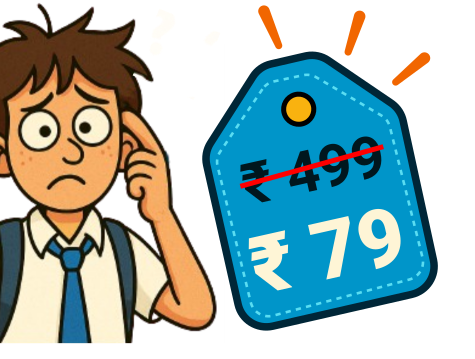Let us have a look at the impact of COVID-19 (Coronavirus) impact higher education in India. Will colleges in India make a shift to online classes and assessments due to the Pandemic?

The COVID-19 scare is giving sleepless nights to students who were to appear in entrance exams like JEE for B. Tech admissions and/ or to class 12 students appearing for Board exams. KCET , GUJCET & MHT CET (supposed to be conducted in April) are expected to be postponed to May tentatively. CBSE has also postponed its exam for now and will release the revised dates on March 31, 2020. It is not incorrect to assume that we will soon see many other organisations follow suit and a whole lot of entrance exams in India be further postponed due to Coronavirus . Looking at the state of affairs, it is a matter of concern what the impact of COVID-19 (Coronavirus) will have on the higher education system in India.
The rate at which Coronavirus has spread to different regions in India has forced the central and state governments to shut down educational institutions and schools as a precautionary measure resulting in the disruption of studies. This problem is prevalent everywhere. In a well-thought-through move by almost 10 US organizations to the Federal Government, they said, " While closing campuses or moving entirely to remote instruction have been necessary steps in slowing the spread of the virus among students and staff, these shifts have caused massive disruption to students, institutional operations and institutional finances. The "substantial" financial impacts on colleges and universities will ripple through local communities, the group said, given the wide economic role higher education plays in much of the country. " Similarly, in India, unless contingency measures are undertaken, students looking for admissions i n 2020 could face hard times.
While academic experts are pushing for online models of education - be it classroom teaching or tutorials, we are yet to see how effectively a nation that primarily relies on an offline mode of teaching can seamlessly transgress to an online medium of teaching and education. So, the question is will the Coronavirus Pandemic result in a new solution for education and innovation?
Given the digital gap in India, how successful will the digital education model be in a country like ours? Will India be able to embrace learning anywhere, anytime? Will it lead to innovation in the field of education? Or will it fall flat on the face for the lack of a more agile infrastructural setup?
Impact of Covid-19 in the Indian Education Setup
The conventional Indian education system follows face-to-face or physical teaching, even though the trend of audio-visual aids in classrooms was introduced a decade ago. Renowned universities in India such as the University of Delhi are offering online classes to its students already. But many higher education institutes in India are not equipped with such facilities. In the event of such a gap, some students might face the brunt brutally, which might affect their entire academic year. Unless we adopt from countries where the standard of education is far more advanced & flexible compared to ours.
Are Indian Colleges/ Education System Equipped to Handle the Change?
In a survey by Times Higher Education in 2018, the leaders of well-known global universities were of the opinion that online teaching could never match with physical room teaching. When we talk about how equipped Indian Higher Education System to handle the change, we need to keep in mind that the digital shift in India is relatively new. Not only in India, but in Asia as well. You will be amazed to know that the first Asian Massive Open Online Course (MOOC) was developed by the Hong Kong University of Science and Technology in the year 2012 only.
Indian Colleges will take time to handle the change and be open to the new methods as the approach of the education system here is a lecture-based approach to teaching. Digital teaching is more evident in schools and the school students/ teachers/parents are more comfortable with this approach when compared to higher education set-up in India. In the event of COVID-19, online teaching has become a necessity, for not only colleges in India but worldwide to look for innovative solutions in a short period of time and to always have a Plan-B in place.
Will the 2020 Academic Year Suffer?
With board exams, university exams, college exams, the entrance test being postponed, it will be a big challenge for colleges to complete their syllabus on time without compromising on the education quality. From delay in board exams to college being shutdown to delay in national level entrance tests, it is the academic year of the students that will suffer. As already discussed, JEE Main which is the ticket to engineering education in India has already been postponed due to the Coronavirus outbreak & will lead to the delay in the start of academic sessions for most of the engineering colleges and most of the other colleges will witness a delay as well. Not just that it is estimated that students aspiring to take admission in 2020 are now clueless as to how and where they should apply to colleges from here on.
2020 Admissions Amidst COVID-19 in India
A large chunk of India's admission system is fractured and most of the students in India rely on the offline process for admissions. It is a known fact that most people in the country do not have access to high-speed WiFi and most of the students in small cities/towns/ villages prefer the offline admission process. According to an article published in New York Times , " schools with more or less open admissions such as Arizona State, Western Governors and Southern New Hampshire Universities fundamentally rethought and rebuilt their undergraduate programs, using digital media to provide increased access at lower cost, the selective schools generally went on with their classroom business as usual ." To implement the same in India might be a time-taking process merely because of a weak education system.
While it is a still grey area, platforms like ours have provisions to facilitate remote applications to colleges in India for their UG & PG. CollegeDekho has a platform called the Common Application Form or CAF , wherein students can fill up a single application form to apply to more than 250+ colleges in India at one go! This is facilitated with an online counseling facility, wherein education experts counsel students on the best course, degree or college for students basis his/ her academic background and aspiration.
Students can use this opportunity for online applications to colleges for admissions in 2020.
College Placements: COVID-19
The outbreak of COVID-19 has led to many colleges in India to defer their GD/ PI process. Popular management colleges like Management Development MDI had scheduled the WAT-GD-PI round in Mumbai from March 21-26, 2020 but the same has been postponed and the revised dates will be issued soon. Similarly, another popular college IIM Lucknow has also decided to postpone its GD-PI for an indefinite period of time.
There are chances that the 2020 placement season may witness a dip as the World Economy is going through a massive decline. With more and more companies requesting an 'outplacement', wherein support service is provided by some organizations to help former employees transition to new jobs or are deferring their joining dates, it will not be aggressive to assume that globally, we are heading towards a major recession in 2020. The Indian Economy and the market will take time to regrow. In the event of such uncertainty, students in 2020 can seize this opportunity to take up a certificate/ pursue a master's degree.
Also Read: List of Exams Postponed Due to Coronavirus
Global Measures to Cope with COVID-19 in Education
In a country like China that practices a much more centralized education system, a switch to digital learning will be easier. Whereas even in a country like the U.S.A, there are many low-income students who do not have access to broadbands and laptops, digital learning might not be the ideal solution. The same is the case with India, not every student here is tech-savvy or has access to the high-speed internet and will therefore suffer. When classes actually commence online, many students will suffer because of their inability to bear the cost. Unless India makes internet available to all, there are chances that the gap in education quality may widen.
China launched a Rain Classroom Teaching Platform in 2016 - one of the most advanced online teaching platform which has more than 19 million users. It has three sessions each of 30 minutes and students are encouraged to submit questions during live interactions. The software is effective and can easily collect and classify the answers.
Courses like Physical Education and Creative Arts are conducted online in various parts of the world. Teachers use online tools to monitor the students and conduct classes.
Given that the traditional focus has been on offline centers of education, we believe a mix of online and offline is what will work in the coming months, which can hopefully be converted to a permanent module. COVID-19 will impact higher education in India but what it has taught us is to build resilience to face such threats in the future. The outbreak of Coronavirus has reminded us that change is inevitable.
Students need to make the most of the uncertainty that prevails and use this time to prepare for exams or take up online courses., that may help them in their future.
Are you feeling lost and unsure about what career path to take after completing 12th standard?
Say goodbye to confusion and hello to a bright future!

Was this article helpful?




















Similar Articles
List of Colleges Accepting Above 35,000 Rank in TS ICET 2025
List of Colleges Accepting 5,000 to 10,000 Rank in TS ICET 2025
Top Delhi University Colleges 2025: NIRF Rankings & Score
SAMS Odisha +2 Admissions 2025 (LIVE): Merit List (Out), Selection Process, Top Colleges
Bhim Rao Ambedkar College CUET UG Cutoff 2025: Expected Cutoff based on Previous Trends
List of ITI Colleges in Delhi: Government & Private Colleges, Fees, Scholarships